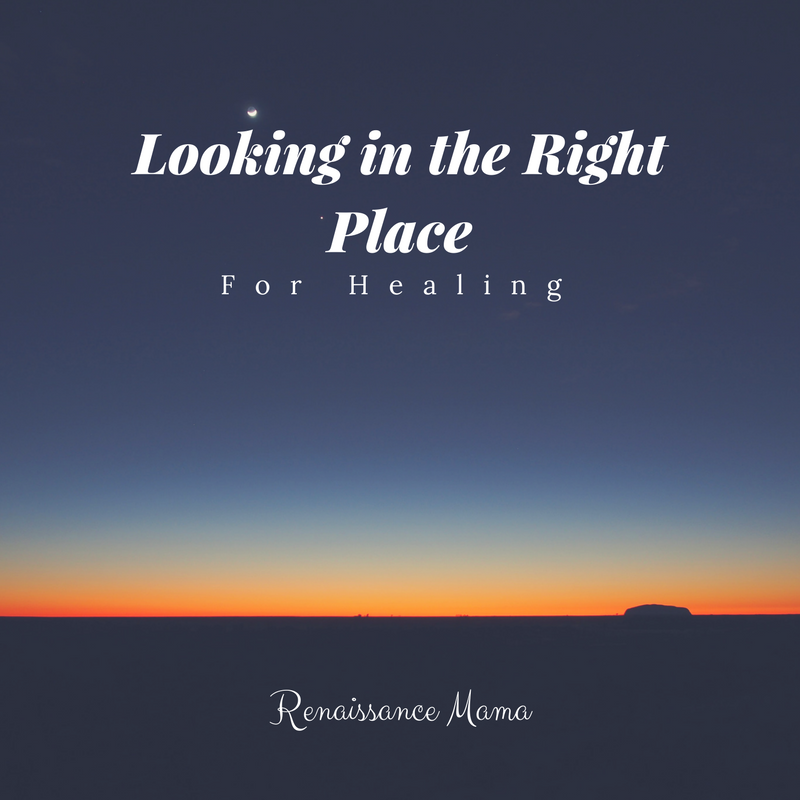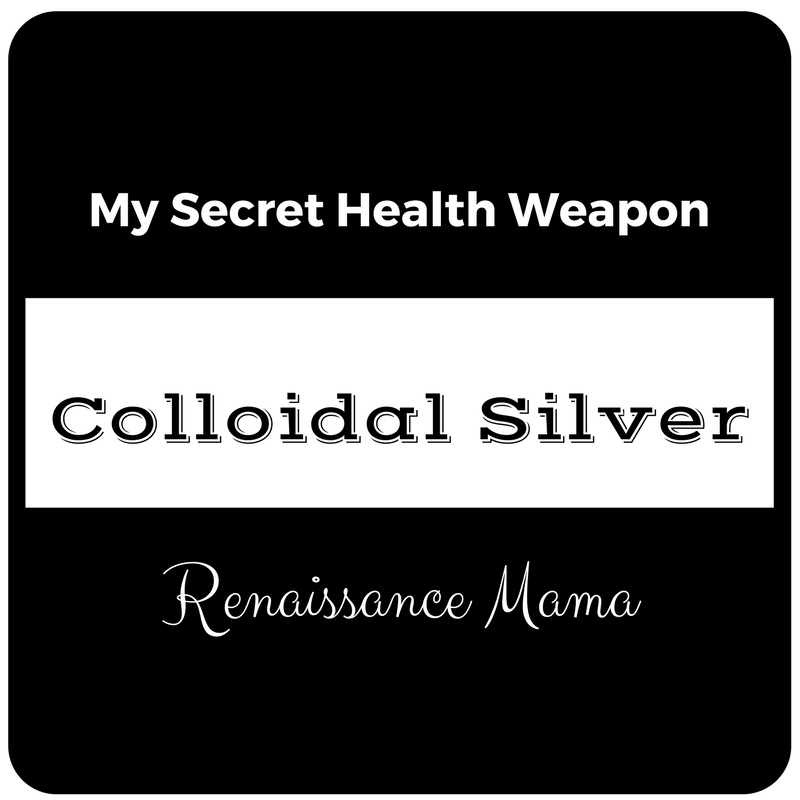
Looking In The Right Place For Healing
Join us on our journey to living a healthier and simpler life by subscribing to our email updates or adding Renaissance Mama to your feed reader. You can also join the party by liking us on Facebook!

Chances are good, if you’re reading this post, that you live in the Western world. Chances are therefore also fairly good that you have been raised in the Western model of medical thought. As time marches on, more and more people are throwing up their hands in frustration, because their health needs are not being met. I want to give you a brief overview today of why our Western model isn’t succeeding and suggest two different options that we would be prudent to consider.
First, Western medicine is designed around a model of sickness and disease. An average medical doctor is focused on symptoms and diagnosing disease. Once they’ve made a diagnosis, they then prescribe a drug (or many drugs) to help manage those symptoms. This might seem ok because it’s the way most of us have been raised to think, but too many people are stuck in this cycle and not finding the answers they need.
Taking a drug to manage a symptom doesn’t actually fix anything. Why do we have symptoms? Symptoms are a way of the body waving a red flag, telling us that something is broken! When we take a drug to quash the symptom, we’re essentially slapping on a piece of duct tape. The symptom disappears for a little while, but a new one, usually more severe, soon appears to take its place. The medical doctor is trained to give you another drug for this new symptom, and soon enough, the average patient is taking 7-8 drugs a day.
To note: this vicious cycle isn’t entirely the fault of the medical doctor. They invested and sacrificed a lot of time, money, and energy (and blood, sweat, and tears) into their training. Medical schools these days are funded almost entirely by the pharmaceutical industry, who produces what? Drugs. And more drugs. They are profitable when they sell drugs. Since they give huge endowments to the medical schools, they have a large say on the curriculum. Medical students receive HOURS upon HOURS of training on different drugs and when to prescribe them.
What if we took a step back and instead of focusing on symptoms, asked the question, WHY am I having this symptom? Let’s look for the root cause!
When we’re on the hunt for the root cause, we must consider two different possible sources. We are oriented to look for physical causes, and that is obviously very important. We have to consider things like:
- Which nutrients are we lacking? Why are we lacking them? Are we not taking in enough, or are we not absorbing what we are eating?
- Are we drinking enough water? Exercising? Detoxing well?
- Are we bombarding our bodies with chemicals from our personal care products, cleaning supplies, and medications?
There’s a lot to look at there. But what if I told you that these physical considerations address only 20% of the causes of incurable disease?
What comprises the other 80%?
A whopping 80% of “incurable” disease has mental or emotional roots. The American Medical Association actually states that 80% of health problems are stress related, and the CDC says 85% have an emotional element. When you address those roots, healing can come. It’s AMAZING to see. Letting go of bitterness can yield healing for osteoporosis. A family struggling so much with life-threatening food allergies that they move within a block of the hospital is healed and can eat whatever they want. A lady with cancer, given only months to live, now is completely cancer free. Astounding story after astounding story.
I experienced this in a small way, yet one very relevant to my life at the time! A few years ago, I had a very itchy, very annoying rash that would pop up on my torso. I did everything I knew to do, including my oils, and was about to throw up my hands and seek medical attention. At church one weekend, a man I had never met walked up to me in the child pickup line and said, “I feel like I have a word for you. I think you have some sort of medical condition that you’ve been wrestling with, and you need to know that it’s tied to unforgiveness.” What??? As soon as I could, I spent some time in prayer and asked God about what the man had said. God revealed to my heart a person against whom I was holding unforgiveness. I quickly repented and forgave them, and within a day, that rash was GONE. Praise the Lord.
That personal experience, while a bit embarrassing for me to share, fully convinced me of the validity of the effect that our emotions and spiritual issues can have on our physical bodies. That’s why I share it with you here. I want to encourage you to open your mind when you or a loved one are struggling with something, and look beyond the possible physical causes. Definitely address those – sometimes the answer is as simple as a diet change or drinking more water! But don’t be afraid to look beyond and to search for answers on an emotional and mental level.
If you’d like to learn more, I recommend this book: A More Excellent Way To Be In Health by Dr. Henry Wright. The first half of the book explains Biblical principles of aligning ourselves with God and His plans and intentions for our lives as followers of Jesus. The second half is an index of sorts, with various diseases and the emotional, spiritual, and mental roots that can accompany them. This book is also full of testimonies from people whose lives have been radically changed by applying these life-changing truths.
I also recommend a book called The Emotion Code by Dr. Bradley Nelson. It takes a different approach to addressing emotions. Essentially, Dr. Nelson teaches that when various traumas happen in our lives, whether big or small, the emotions that we experience aren’t always released from our bodies. When they’re not released, they become trapped in various different organs. Those trapped emotions disrupt the energy of our organs, and they begin to function at less-than-optimal levels. Through simple techniques, taught in the book, you can learn how to release trapped emotions. I’ve done some of this work on myself, my family, and a few friends, and have seen some great results!
The Western model of disease management is failing us in many ways, and it’s time to more fully utilize other methodologies. Our foundation of medical care must return to searching for and addressing the root cause of issues, and considering both natural medicine and emotional/spiritual/mental connections for proper healing to take place.

